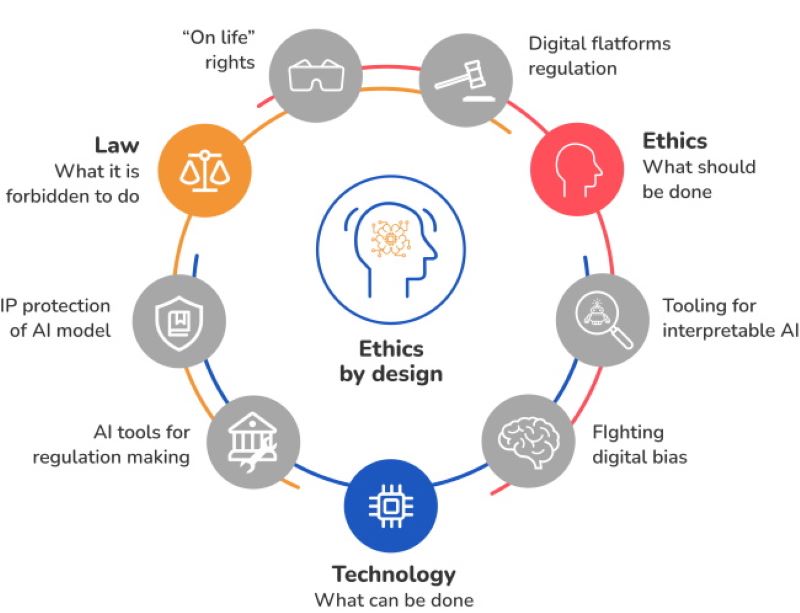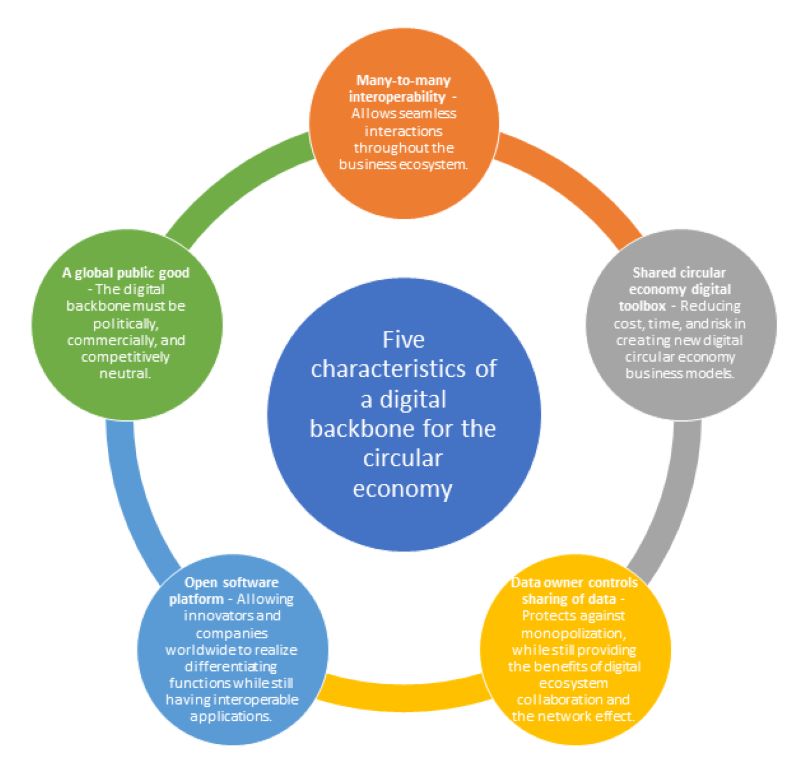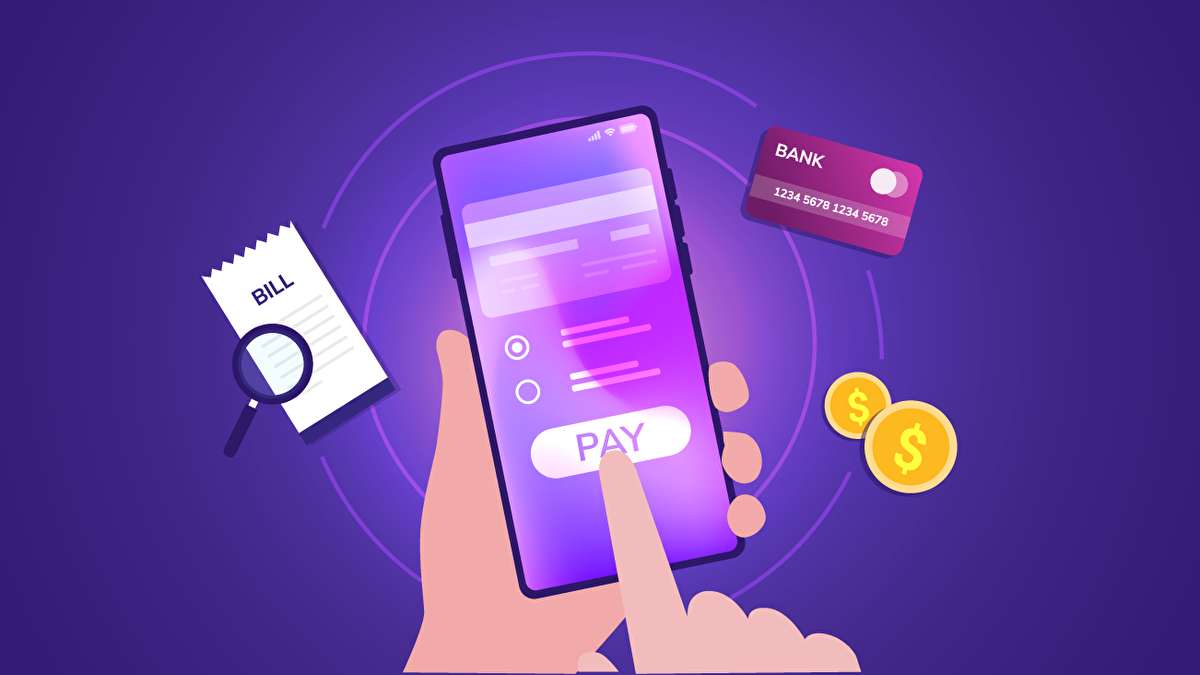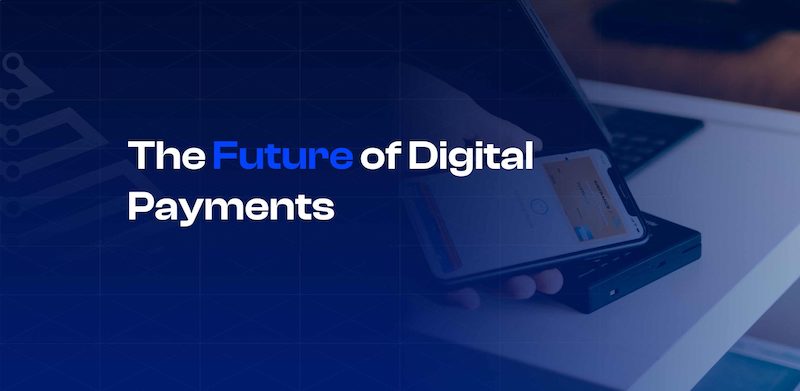Emerging Technologies: Are You Ready for the Digital Economy Race?
Picture this: you’re on the starting line, heartbeat racing, and the pistol fires. That’s where we are with emerging technologies and competition in the digital economy. It’s a race and you’re in it – whether you’re a small business owner, a tech guru, or just love staying ahead. So buckle up! We’re diving into AI’s smart tools and blockchain wonders, changing the way your world spins. And that’s just the start. Peek at the movers and shakers rocking markets and see if you can stay ahead. Ready for 5G speed and cloud power? It’ll make or break your lead. Let’s not forget ethically smart tech for tomorrow. Trust me, it’s a whirlwind of “Wow!” and it’s reshaping your future, starting now. Are you in to win? Let’s race to the finish.
Understanding the Digital Economy and Its Innovations
The Role of AI and Machine Learning Applications
We’re racing down a digital track. AI and machine learning are the engines powering us forward. Imagine AI as a smart helper. It learns and gets better, making things easier and faster.
What is AI’s role in the digital economy?
AI streamlines complex tasks. It turns mountains of data into nuggets of wisdom. In simple terms, AI helps us make better choices, quicker than ever. This is all about using machines to sift through data. They find patterns and solve problems just like a human brain, but like a superhero, they do it at lightning speed.
In the world of online shopping, AI predicts what you’re keen to buy. In finance, it spots fraud in a snap. For cars, it makes them smart enough to drive themselves. Think of it as the sharp mind, behind every smart move in tech.
The Impact of Blockchain Technology and IoT Advancements
Now, let’s talk blocks and chains. No, it’s not a new game. It’s blockchain, a tech that keeps data safe. It locks each digital record together in a chain nobody can mess with.
What does blockchain do for us?
It backs up digital cash, like Bitcoin, so no one can fake it. It helps track items from A to B, ensuring they’re real, not knockoffs. It’s the digital ledger that’s nearly impossible to cheat.
Next, let’s not forget the Internet of Things (IoT). Fancy term, right? But it’s just stuff like your fridge or watch talking to the Internet. They chat, exchange info, and make life more smooth. Imagine your alarm clock telling your coffee maker to start brewing. That’s IoT weaving magic into your day.
With blockchain and IoT on board, we’re building a world of trust and connectivity at our fingertips. They’re twin powers in our digital economy, making sure we’re safe and hooked up. They’re not just pie in the sky; they’re real, and they’re here to stay.
The tech race in the digital economy is packed with excitement. It’s not just about who’s the fastest; it’s about who can use AI, blockchain, and IoT the smartest. And the coolest part? This race has space for everyone. You can join in, get your hands on these tools, and start turning your big ideas into reality. With these tech wonders, we’re not just ready for the future; we’re making it, right here, right now.
Navigating the Tech Startup Ecosystem
Disrupting Markets: Case Studies of Success
Tech startups are shaking up markets like never before. They rethink how we do things. Think about Uber or Airbnb. They turned the transit and hotel industries upside-down. They saw problems—like hard-to-get cabs and pricey rooms—and they fixed them. They used tech to do it. This way, they got ahead fast. New firms can make waves, no matter who’s already playing the game.
With AI and machine learning, these firms predict what customers want. They find patterns and act on them fast. Like Netflix: It suggests shows you’ll love. How does it know? Big data and smart algorithms. This is how tech startups get you coming back for more.
But tech startups face big challenges too. They must innovate without stepping on others’ toes. Because let’s face it, the tech industry is fierce. Big companies may copy your idea if it’s good. That’s why staying original is key. And it’s a tightrope walk—stay fresh but play fair.
Balancing Innovation and Competition in the Tech Industry
Innovation keeps you in the game. Competition makes it fun. It’s like a tech tug-of-war. Both sides pull hard. One pulls with fresh ideas. The other with tried-and-true methods. A startup needs to bring something new to the table. It could be a service, a gadget, or software. But it has to make people’s lives easier or more fun.
Now, think about IoT—Internet of Things. It’s stuff like smart watches and home assistants. They connect and share info without us. This changes how we live. But what about the rules? We need to make sure these things are safe to use. They must be secure, so private stuff stays private.
Blockchain impact? Huge. It’s not just for Bitcoin. It’s a way to keep data safe and clear. No one can change it easily. This builds trust, and in the digital economy, trust is gold.
Then there’s 5G. It gives us the speed we need for everything to connect quickly. It means your phone talks to your car, your fridge, and even your shoes. But we need the signal everywhere for this to really work. Startups will use this to think up things we can’t even imagine now.
And we can’t forget the competition. How do you stand out when everyone is smart? You dive deep into your customer’s world. You find what’s bugging them. Then you solve that thing better than anyone else.
Tech startups create tomorrow’s world today. But they also must play nice with others. No one wins if we all fight. The finish line moves when we help each other. That’s how we all cross it.
In the next bit, we’ll dig deeper into tech’s backbone—things like 5G and cloud services. And remember, you’re in this race too. Make sure you’re moving with the times!
Infrastructure and Connectivity: The Backbone of the Digital Economy
The Significance of 5G Network Rollouts and Cloud Computing Services
The digital economy race is on. Fast, reliable internet is key. Think of it as a race track. The race track for our digital world is getting an upgrade. Welcome to 5G. Faster phones, stronger connections. It’s a big deal for everyone. With 5G, things like downloading movies or video chats will be super quick. That’s not all. 5G lets more devices connect at once. This means cities get smarter and cars could talk to each other to avoid crashes.
Clouds aren’t just in the sky anymore. Cloud computing is also part of this race. It lets you save files not on a computer, but on the internet. This is great because you can get to them from anywhere. People can work together even when they’re far apart. Companies large and small are moving to cloud services. It’s like having a supercomputer in your pocket. Anytime you need it, it’s there.
Smart City Infrastructure and Cybersecurity Developments
Race tracks need good support teams. Smart city infrastructure is like that support team. It uses tech to make life in cities better. Sensors and data help manage traffic and save energy. Smart cities might help trash trucks pick up only full bins. Lights only turn on when they need to. Good tech makes smart cities run smoothly.
But with good tech, we must have good security. Bad guys want to steal data or mess with systems. Cybersecurity stops them. New tools and smart computer programs help fight these threats. In our digital race, cybersecurity is like having a strong, safe car. It keeps the race fair and safe.
The race is fast, exciting, and always changing. Innovators are the drivers. Their big ideas push us forward. Even small ideas can make a huge impact. Think of the ways you use tech every day. Now imagine it getting even better. That’s what this digital economy race is all about. Are you ready to join in?
The Future of Technology: Emerging Trends and Ethical Considerations
Quantum Computing, AR/VR Market Trends, and Big Data Analytics
The race in the digital economy is fast and thrilling. Tech giants and startups alike are pushing hard, each aiming to be first past the post with the latest innovation. It’s a world where being savvy with tech trends is crucial. So, let’s dive in.
Right now, quantum computing is making waves. Its power can solve problems our current computers can’t touch. This means faster, more complex data processing is coming. Imagine jobs we think take forever done in a blink. That’s the promise of quantum computing. It’s not sci-fi; it’s real, and it’s on the horizon.
AR and VR are reshaping how we experience the world. AR puts digital images right in our real-world view. VR takes us to entirely new places, all from the safety of our homes. Retail, gaming, education – they’re all changing thanks to AR and VR. This tech is no longer just for fun; it’s a serious business tool too. The market trends? They’re going up!
Let’s talk about big data analytics. It takes our huge pile of data and finds the gold nuggets hidden inside. Companies use it to spot trends, understand customers, and make smarter decisions. Picture having the answers before you even ask the questions. That’s big data analytics for you.
Sustainable Tech Solutions and Ethical Implications of AI
Sustainable tech isn’t just nice to have; it’s a must. We’re talking about tech that meets our needs without harming future generations. Think solar roads, eco-friendly data centers, and more. It’s tech thinking green and making a real difference.
Now, onto AI. We’ve heard the good: it can drive cars, write articles, and even help find cures for diseases. But there’s always a flip side. Ethics is the big talker here. Who takes the blame if an AI messes up? How do we keep AI fair and free from bias? And most importantly, how do we protect jobs?
These questions matter because AI is here to stay. And it’s not just playing a role behind the scenes. It’s front and center, changing how we live and work. We need to get the ethics of AI right to keep our digital race a fair one.
Behind all these tech trends is you – the user, the consumer, the worker. Your choices shape the market. You decide what tech thrives and what flops. Every swipe, click, and share you make is a vote for the future of tech. So stay curious and informed. The digital economy race is a marathon, not a sprint. And we’re all in it together.
In this post, we’ve explored the digital economy and its many moving parts. From AI and machine learning to blockchain and IoT, these innovations shape how we live and work. Start-ups are shaking up markets, and to stay ahead, they must play it smart in a field ripe with competition.
Key tech like 5G and cloud computing are vital to our connected world, making cities smarter and safeguarding our data. And as we peer into the future, trends such as quantum computing, AR/VR, and big data analytics emerge, leading us to question not just what we can do, but what we should do.
Here’s my final say: technology moves fast, and it’s packed with promise and pitfalls. As experts and citizens, we must foster tech that betters society and treads lightly on our world. Let’s take what we’ve learned and use it to make smart choices in the tech we create and adopt. The future is ours to shape—let’s build one that’s bright and responsible.
Q&A :
How are emerging technologies shaping competition in the digital economy?
Emerging technologies, such as artificial intelligence, blockchain, and the Internet of Things, are redefining the parameters of competition in the digital economy. They enable more personalized services, streamline operations, and open up new business models and strategies that can give competitive advantages to early adopters. These technologies are creating more dynamic and innovative marketplaces where agility and adaptability are key to a company’s success.
What are the biggest challenges for businesses in adopting emerging technologies?
One of the biggest challenges for businesses adopting emerging technologies is the significant investment required in terms of time and resources to integrate these technologies into their existing systems. Additionally, there is often a skills gap in the workforce that needs to be bridged through training or hiring. Data security, regulatory compliance, and keeping pace with rapidly evolving technology trends are other challenges that businesses commonly face.
How does the digital economy promote competition through emerging technologies?
The digital economy promotes competition by lowering barriers to entry for startups and small businesses through emerging technologies. It provides businesses with tools to reach wider audiences, gather and analyze customer data, and optimize their services. Furthermore, it fosters innovation as companies are pushed to compete not just on price, but on delivering unique user experiences and enhancing product offerings through technology.
In what ways do emerging technologies enable new business models in the digital economy?
Emerging technologies have paved the way for new business models such as the sharing economy, on-demand services, and subscription-based models. They have also enabled businesses to offer more comprehensive and integrated services through platforms that connect different sectors and industries. Technologies like AI and machine learning are driving advancements in personalization and recommendation engines, encouraging the development of customer-centric service offerings.
How can companies effectively leverage emerging technologies to stay competitive?
To effectively leverage emerging technologies, companies must foster a culture of continuous learning and innovation. They should invest in research and development, and be willing to experiment with new approaches. Companies need to embrace agile methodologies that allow for quick adaptation, and they must invest in upskilling their workforce to handle new technology. Strategic partnerships with tech firms and participation in technology incubators can also provide valuable insights and access to cutting-edge advancements.






